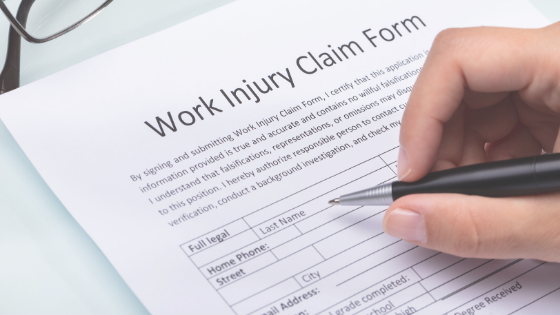One of the biggest expenses affecting small businesses is workers’ compensation insurance, which covers expenses associated with injuries to employees while on the job. Workers’ compensation is one way that small business employers can help protect the people that work for them. Workers’ compensation includes medical bills, as well as payment for lost time and for any permanency of injuries. Coverage is required by all states and rates vary.
How does a workers’ compensation claim affect my premium? One factor that determines your workers’ compensation premium is your loss history. This means that having a workers’ compensation claim can cause future premiums to increase.
If you have claims with medical bills only, your claim will probably be discounted 70% and it is unlikely this will affect your premium significantly. However, if you have a claim where there are medical expenses and the employee is out of work, then you can anticipate this will cause your premiums to rise. If you do have a claim where the employee misses time from work, there are things you can do to minimize the effect this will have on your loss experience.
Take Action When a Claim Occurs
When an employee experiences an injury on the job, make sure to complete an accident report with as much detail as possible. The first report of injury should be sent within 24 hours to the insurance company to ensure prompt handling and to help fight fraudulent claims.
A drug test should be required of the employee. While a positive drug test will not allow you to deny a claim in most states, it will certainly help. You might want to consider conducting random drug testing for all employees. Be upfront about telling all potential employees that submitting to random drug tests is a requirement for employment, which should decrease any potential drug-related claims.
One way to minimize the impact of claims is by bringing employees back to work as soon as they are medically able. You could modify the employee’s job, offer reduced hours or offer a light-duty job until the employee is fully healed. For example, if you have a painter with an arm injury, he or she could answer phones or prepare estimates.
If possible, to save the most on future premiums, bring injured employees back to work before your state’s waiting period has kicked-in (for Virginia, this is 7 calendar days). If you do this, the claim will be considered medical-only, so only 30% of claim costs will be included in the experience mod calculation.
In addition to the cost savings, bringing employees back to work as soon as possible helps employees maintain their mental and emotional well-being, and improve their financial stability. It’s not only the smart thing to do, but also the right thing to do.
Be Aware of Possible Fraud
If you suspect fraud, immediately inform the insurance company. Review your policy for accuracy of the claim. Realize that sometimes it pays to investigate what you suspect is a fraudulent claim.
Make Safety a Priority
If you have not done so already, develop a written safety control program. Better workplace safety leads to fewer claims, and fewer claims directly affect your workers’ compensation rate.
A disciplinary program also should be incorporated into the safety program, one that holds the employees accountable for breaking the rules or rewards them for correctly following safety procedures.
Taking the necessary precautions and actions when there are workers’ compensation claims will definitely minimize your workers’ compensation premium costs.
If you’re looking to stay up-to-date on the latest insurance and industry news, please feel free to sign-up for our monthly newsletter here!

Recent Comments